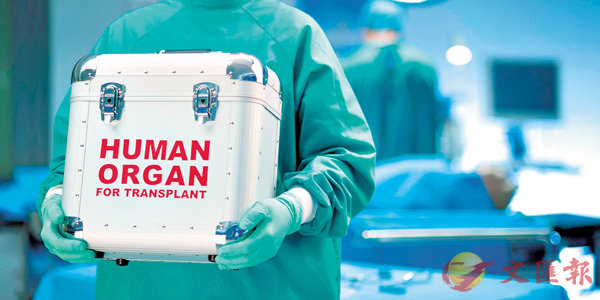 ■荷蘭有機構指出,研究顯示其他國家及地區在推行類似制度後,捐贈器官人數增加。 網上圖片
■荷蘭有機構指出,研究顯示其他國家及地區在推行類似制度後,捐贈器官人數增加。 網上圖片【原文】下文摘錄自香港《文匯報》2018年2月15日報道:
荷蘭(Netherlands)參議院(Senate)2月13日以38票贊成、36票反對,通過預設默許器官捐贈法案(ADR,Active Donor Registration),2020年所有年滿18歲的國民若未有提出反對,便自動成為潛在器官捐贈者(organ donor),等於同意身故後捐出器官。
支持者認為荷蘭一直缺乏用作移植的器官,實施法案後將大大增加器官捐贈者人數,但批評者指政府對公民身故後的安排擁有太大決定權。
任何時間可改意願
荷蘭眾議院前年已通過法案,在參院通過後,將交由國王威廉.亞歷山大(King Willem-Alexander)簽署生效。
根據法案(bill),政府向每名未登記為器官捐贈者的年滿18歲公民,在相隔6周內先後寄出兩封信件,詢問他是否願意成為捐贈者。若國民對兩封信均不作回覆,當局便會把他自動列入捐贈者名單。他在任何時間均可更改意願。
由於荷蘭社會對法案爭議(controversy)甚大,眾議院前年亦僅以一票之差獲通過,後來更有近4,500人要求從器官捐贈登記名單中除名(de-registration)。
為平息爭議,法案最終版本加入一些條款,例如即使離世者生前已表示為捐贈者,否則其親屬有權決定捐贈器官與否;進行捐贈前,當局亦必須諮詢(consult)其親屬。
荷蘭於2016年上半(first half)年,共有57名病人等不到合適器官移植而離世。
提出法案的中間派政黨(moderate party)「民主66黨」(Democrats 66)表示,期望法案可增加全國器官捐贈者,減少病人因等不到合適器官移植而死亡的情況。
機構:令病人重獲新生
荷蘭腎臟基金會(Dutch Kidney Foundation)指出,研究顯示其他國家在推行類似制度後,捐贈器官人數增加,形容法案對等候器官移植的病人而言,是一次真正的突破(breakthrough),令病人重獲新生。
目前荷蘭約有40%公民在器官捐贈者名單上登記。兩年前一項民調顯示,逾60%的荷蘭成年人支持ADR。
另一方面,西班牙(Spain)於1979年已設立類似制度,法國(France)於去年1月也提出類似法案。
西班牙在器官捐贈方面居世界前列,根據2016年的數據,西班牙每100萬人便有43.4人為器官捐贈者,大幅高於歐盟(European Union)平均的19.6人和美國的26.6人;香港一年在每百萬人當中只有5.8人捐器官,在全球範圍屬偏低水平。
Dutch law to make all adults organ donors by default
【譯文】A new law of Active Donor Registration (ADR) was approved by the Dutch Senate on Feb 13 in a 38-36 vote, which makes all adults living in the Netherlands organ donors from 2020, unless they opt out.
Adovcates believe the country is facing a severe shortage in donated organs and the new law could help bring about increases in organ donors. Opponents critize the government for being too assertive about the after-death arrangements of citizens.
The law was passed by the lower house of the Dutch parliament in 2016. It will go to the office of King Willem-Alexander for his signature.
Allows change of mind any time
According to the bill, every person over 18 who has not been registered will receive an offical letter asking for his or her consent for organ donation. Failure to respond to the letter, or another 6 weeks later, will result in the person being considered as a donor by default. However, people are allowed to change their organ donation status at any time.
The law was so controversial that it passed the lower house in 2016 by a silm one-vote margin, and nearly 4,500 people requested de-registration from the list.
In response to the controversy, some refinements were made to the final version of the bill. For example, the bereaved reserve the right to make decision on medical donation even the deceased has clearly declared willingness before. The authority is also required to fully consult the relatives before making final decisions.
Statistics have shown that some 57 people in the country died waiting for a new organ during the first half of 2016.
The moderate party Democrats 66, which initiated the bill, hopes the new measure to help boost donations and hence reduce the number of death cases due to organ shortage.
"A real breakthrough"
The Dutch Kidney Foundation said that according to studies, the number of registered donors has climbed in countries where similar systems have been introduced. It described the bill as "a real breakthrough for patients on waiting lists" that enables them to regain life and freedom.
About 40 percent of people in the country are on the donation list. Over 60 percent of Dutch adults surveyed two years ago supported the ADR.
On the other hand, Spain already set up a similar system in 1979. France also initiated a similar bill in January last year.
In fact, Spain ranks first in the world in organ donations, giving an average of 43.4 registered donors per million people in 2016, a number substantially more than European Union's average of 19.6 and US's average of 26.6 in the same year.
Hong Kong's rate of organ donation, at only 5.8 donors per million people every year, is among the lowest worldwide.■龐嘉儀
考考你
1. 本港衛生署設立了什麼系統以便有意捐贈器官者自行登記?
2. 器官移植分為哪兩大類別?
3. 全球首個成功進行人體器官移植的國家是?
4. 近年意大利神經外科醫生Sergio Canavero積極推行哪個器官的移植手術?
5. 什麼新型醫療技術有望取代器官移植?
1. 中央器官捐贈登記名冊(Centralized Organ Donation Register, CODR)
2. 同種異基因移植(人與人之間)及異種移植(人與動物之間)
3. 美國
4. 人類頭顱移植手術
5. 幹細胞(stem cell)培植

